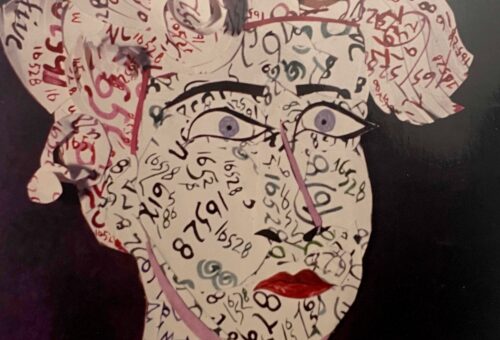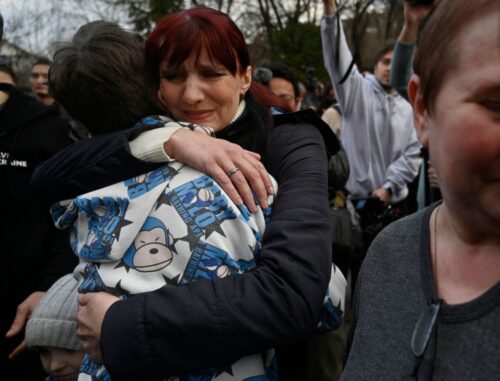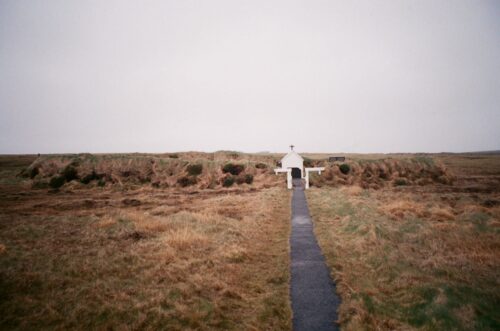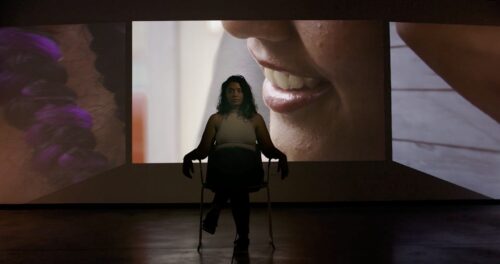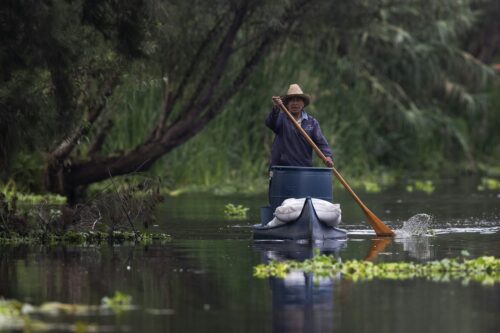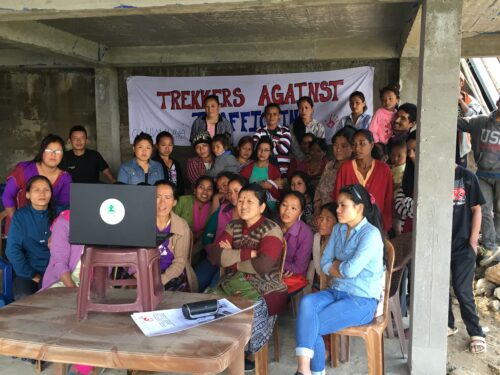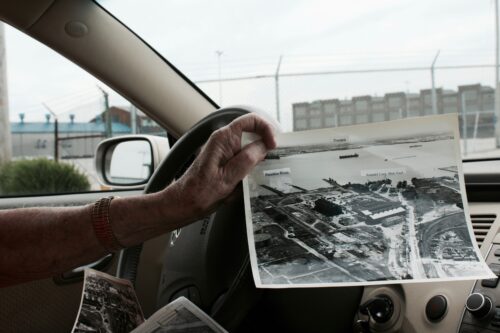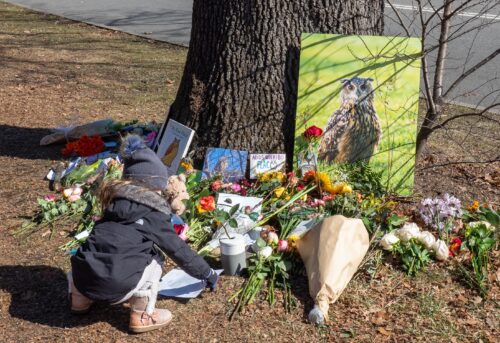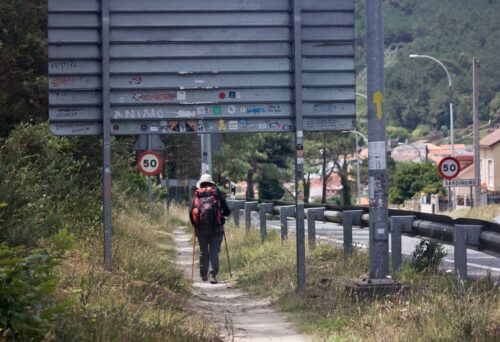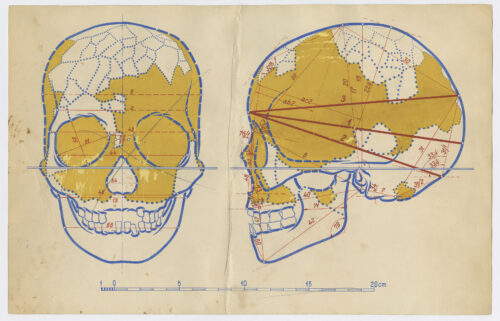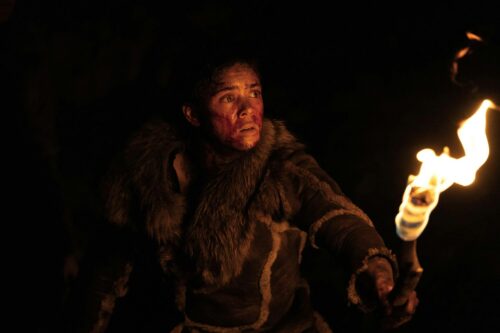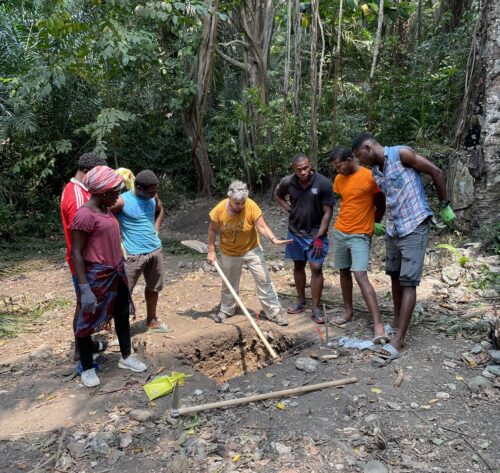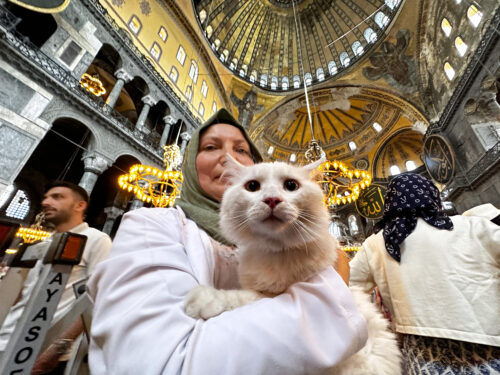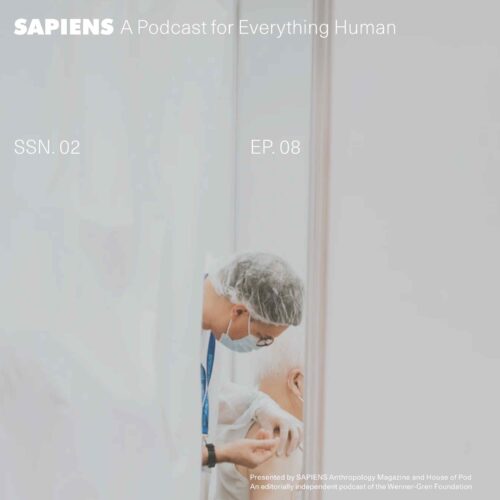Anthropologist Elisa Sobo never wanted to study the issue of vaccination. The topic was too fraught, she says, and she didn’t want to touch it. But then she initiated a children’s health study at a school in California. Today her work on vaccine hesitancy offers insights into how those on opposing sides might better understand each other and work through this highly controversial issue.
For more, check out Elisa Sobo’s SAPIENS piece about her work on vaccination: “Beyond the Vaccination Rift.”
For the other vaccination-related SAPIENS article Chip mentions in this episode, see: “Why Eradicating Polio Is More Complicated Than It Seems.”
SAPIENS: A Podcast for Everything Human is part of the American Anthropological Association Podcast Library.
Chip: We’ve got another really interesting episode for you today, but before we get into it, I want to take a minute and ask you for a favor.
If you like the kind of science-driven storytelling we do, and you want to make sure we’re around to keep doing it, please rate and review us on your podcast player of choice. Or, maybe tell a friend about the show?
That kind of support is invaluable for us. It will help us reach new listeners and make sure we can keep making this podcast just the way you like it.
So, while you’re listening to today’s episode, take a minute, rate and review, then enjoy.
Jen: I’m Jen.
Chip: I’m Chip.
Jen: And we’re the host of SAPIENS: A Podcast for Everything Human.
[SAPIENS intro]
Jen: Chip, if it’s OK with you, I’d like to do something a little different this time.
Chip: I like different. What do you have in mind?
Jen: This season, we’ve talked about colors and dreams and eating insects, and we’ve heard how people all over the world experience those things differently—and how all of that helps us understand what it means to be human.
Chip: Yeah, it’s been an awesome season, right?
Jen: Yeah, for sure. But this time, I thought we could start with something a little different.
[News-style clip: “Vaccines: Modern day miracle or cause of autism? A growing group of parents around the world are saying no to vaccines for their children.”]
Chip: OK, wow, ripped from the headlines. I like it. But the vaccination debate is everywhere. What can we bring to the discussion?
Jen: Well, I have an idea, but let’s quickly review how we got here.
Chip: Perfect. How far back are we going to go?
Jen: 1796.
Chip: [laughs] Wow. What happened in 1796?
Jen: Well, I did some reading on this. Apparently, before 1796, it was common practice for doctors to expose healthy people to small amounts of smallpox. Those that survived were immune to the disease, but not everyone survived. Then along came a country doctor named Edward Jenner. He had heard from some other doctors about these farmers who were exposed to a similar, but far less deadly, disease called cowpox. But here’s the thing, those farmers appeared to be immune to the much more deadly smallpox. So, in 1796, Jenner decided to test this idea out. He took a small amount of cowpox-infested tissue from a milkmaid and exposed it to his gardener’s 8-year-old son. I know! His gardener’s son!
Chip: That wouldn’t have passed informed consent today, right? But that definitely sounds like the 18th century to me.
Jen: Yeah, but it worked! The boy got a little bit sick, but then he got better. And when he did, Jenner exposed him to smallpox, and he was immune, just like the farmers!
Chip: And that was the first vaccination?
Jen: Different versions of the idea had been around for a while, but Jenner was definitely the first to popularize it. And he dedicated the rest of his life to vaccinating people against smallpox. His vaccine spread and spread, and smallpox was eventually eradicated.
Chip: That’s a super cool story, Jen, but it sounds pretty cut and dry. What’s so vexing about any of that?
Jen: Well, ever since Jenner exposed that little boy to cowpox, people have been suspicious about vaccines. Jenner had his critics back in the day. And today we can trace our current strain of vaccine hesitancy to 1998 when British gastroenterologist Andrew Wakefield published a study in this prestigious medical journal called The Lancet. His study showed a link between the MMR vaccine, which treats measles, mumps, and rubella, and autism.
Chip: Wasn’t that study discredited?
Jen: It was widely discredited within the scientific community and eventually retracted, but not before it planted a seed of suspicion in the minds of many concerned parents.
And now, measles is back. Here in America, it was eliminated almost 20 years ago, but in the past year alone, there have been hundreds of confirmed cases in communities all across the country.
Chip: All right, I’m going to take a step back here. Big picture: What are we looking at?
Jen: What we’re looking at is a situation where modern medicine has provided a way to prevent a disease, and more and more people are rejecting it.
Chip: And we’ve got increasingly polarized rhetoric all around it, sometimes within families. I’ll tell you, for example, my sister has really strong feelings about vaccinations, and that’s led to some, let’s say, passionate discussion.
Jen: [laughs] I’m sure. It’s a really tricky problem, and lives are at stake. So, here’s what I’m thinking. I’m thinking there must be something to learn here, something deeper about what it means to be human. And maybe if we understand more about why this is happening, we can see a path forward.
Chip: Do you know Elisa Sobo, Jen?
Jen: No.
Chip: She goes by “EJ,” and she’s a professor of anthropology at San Diego State University. A few years ago, she wrote one of my all-time favorite articles on SAPIENS.org. She’s done some really important work on vaccine hesitancy at a school in California. And, no doubt, the situation has evolved since then, but I’m sure she’d be able to help us think through these questions.
Jen: She sounds perfect. I’m on it.
[music]
Jen: So, before we get into your research, I’d love to start by learning a little bit more about you. Were you always interested in this vaccination controversy?
EJ: No, no. This was not something that I came to of my own interest or my own accord. I’m a medical anthropologist, and I’ve always, for the longest time, I’ve been studying child health—but not the vaccination question. And there are a couple of reasons for that, one being that it’s just so fraught, and I never had an interest in getting caught up in that kind of thing.
But I had been working in a children’s hospital, and if we go back in time, maybe 15 years ago, the epidemiologists and the public health community were noticing a radical rise in childhood obesity, and even in seeing things like diabetes type 2, which used to be called adult onset diabetes, coming up in kids. There was an increase in ADD diagnoses. There were all kinds of health problems that children were experiencing that just seemed to be new and seemed to be correlated to a new emphasis in schools that had kids sitting still longer.
So, recess. I don’t know if you had any experience of schools at that time, but recess had often been cut back at many schools to make more time for studying for the systematic testing, the structured testing, that was going on. And also, there were problems with school lunch, where ketchup was a vegetable, and kids were just being fed these, kind of, McNuggets of who knows what. So, there were a lot of health problems. And there was a focus at the time on schools as pathogenic, or health-damaging, sites.
Coming a few years later, I started to hear about a pedagogical approach—the Waldorf education approach and different alternative schools, Montessori, and a variety of alternatives—that didn’t go for the standardized testing and that put a big emphasis on keeping kids active, even to the point of using, for example, jumping jacks to teach the times tables or hopscotch and this kind of thing.
And some of these schools would, as you look into it, you could see this is a site that maybe is not pathogenic but is salutogenic, that is, a health-promoting site, a health-promoting school. So, I got interested in rather than looking at pathogenesis, looking at salutogenesis, looking at the health promotion through a pedagogical approach.
So, I got myself an interested school that was willing to participate, and I interviewed staff and teachers and the people who were part of that school system. And I also recruited a representative random sample of parents, because in addition to what goes on in the classroom and in the play yard, I wanted to just find out what goes on at home because the school did give lots of advice to parents in terms of healthy eating, healthy bedtimes. Rather than to put your kid in front of the TV, send them outside to play, have them climb trees, this kind of thing.
So, in some of the interviews, parents would talk about the nutrition, and they’d talk about the outdoor activity and so forth, but then they’d also stop and say, “Well, wait a minute, one of the reasons why our kids are so healthy that you haven’t mentioned is vaccination.” So, the parents brought this up. And they would say things like, “Well, we don’t vaccinate, and that’s why our kids are so healthy.”
Jen: But you still didn’t want to study vaccinations at that point. So, what changed?
EJ: So, in looking back at the data, I kind of let that go. Again, because it wasn’t what I was investigating. It’s a hot button issue, and I just didn’t really want to touch it, and it wasn’t what the school was talking about as they discussed their pedagogy with me. But going back to the focus groups, listening to them and reading over them again, I couldn’t help but have to admit to myself that something was going on there around vaccination that was more than just this interesting claim. There was a tension around that issue.
Jen: What did that tension look like?
EJ: So, in the focus groups, we had groups of parents—not just the one who would, you know, be unchallenged on their viewpoint—but where you had groups of parents and somebody would bring up the vaccination issue. They would be very bold, and they would hold the floor. And they would talk about “at this school!”—this kind of thing. But there was always a tension there that there were some people sitting on their hands or biting their lip, and eventually, it would come out, “Well, that’s what you say, but I vaccinate my kids.” So, I had to go back after publishing the papers that had to do with, you know, activity in the school yard and approaches to teaching math that brought the body into it. I sat down, and I said, “You know what, I’ve got to do something with this.” Looking at the tension that was surrounding this issue, I went back through all of the data and all the stuff that I had ignored or pushed under the cushions of the sofa, so to speak, I brought it out, and I looked at it. And there was something there. And as an anthropologist, I couldn’t ignore it anymore.
Jen: So, you went to this school in the first place because it offered an alternative pedagogy model. Like you said, lots of emphasis on movement, lots of emphasis on healthy eating and health in general. But as you wrote in your article for SAPIENS.org, a much higher-than-average percentage of kids at this school weren’t fully vaccinated. So, how did vaccines play into those health conversations in the school and in the community around the school?
EJ: People were highly educated about vaccination, or at least it seemed so to me. And I tested this later when I broadened out to include a broader segment of the community. But my impressions from this group is that, gosh, these people really do work hard to educate themselves about child health.
But, you know, standing back from it, there’s a lot of work that went into getting information and getting smart about vaccination. And, in fact, in the community project, it turned out I did some quantitative assessment of this kind of thing, and I learned that the selective vaccinators actually had more “correct” knowledge about herd immunity than the full vaccinators. They had higher information literacy scores.
So, this is a really interesting thing. These people are doing exactly what doctors tell us to do when we go out and we educate ourselves, and gosh, they know a lot more than full vaccinators. Full vaccinators couldn’t really answer you when you’d ask them why they vaccinate. It would be something sort of like, “Well, doctor recommended it,” “part of the package,” or “I don’t know, my parents vaccinated me.” You couldn’t really get them going and talking about it; they really didn’t have anything to say.
And I look back, I reflect on myself. I’m very docile. I have no, I didn’t understand how vaccination works way back when I had to make that decision—versus the vaccine selective people, who really have a very, a deeper understanding. Now, maybe they don’t make the decision that the public health people would want them to make, but they’re doing exactly what the health community tells us to do: Educate yourself and make your decision based upon what you learn and what’s best for you.
Jen: I’d love to learn a little bit more about what you think the mechanisms that are driving those decisions.
EJ: Sure, so a person who’s going to opt in to this kind of a school, whether it’s Waldorf or Montessori or any other school like that, is a person who’s also opting out of mainstream education. And many times, you’re going to get a lot of stick for doing that, like, “Why, aren’t we good enough for you,” and any kind of, “You’re crazy, what are you doing that for?” So, you’ve lost already some of the social support that you had in your network, and you’re gaining, at the same time, a community, which really is a community much more than many mainstream public schools can be. Your kids are going to these kids’ houses after school and on weekends. There’s lots of school-promoted events that are after hours. There are parent education things that go on and all kinds of stuff that brings the community together.
And this community becomes really important to you. You’ve already opted out of the mainstream. These are your new friends; these are your peers. This is your social support group. And when certain individuals in that social support group are respected and vocal about not vaccinating, you might listen a little more closely than you would in another circumstance.
These are your peers. We all do what our peers do, right? We’re human. We’re culture-bearing creatures, and part of culture is following fashion and doing what people do. And if people at your office wear red shoes, you’re going to wear red shoes. And sometimes we do it without even thinking.
Jen: I was hoping we could maybe think through an example of how these particular social dynamics play out in these alternative schools that maybe have a more conscientious effort toward community. So, let’s say a hypothetical family moves into the area and enrolls their kids into one of these schools. How does that snowball effect happen?
EJ: OK, so let’s say you have a 4-year-old, and you move into the area. For whatever reason, you enroll, and maybe you’re expecting another child. And your 4-year-old has been getting shots all along because that’s what people do, right? And again, if you talk to full vaccinators, “This is, I don’t know, this is what people do, so you just do it.”
So, then you learn, “Oh, there’s another way to look at this thing. Oh, you mean I really didn’t maybe need all these shots?” And you might start to question it in the same way that you’ve questioned mainstream education, so, you see, you’re already a person, often, who is questioning. And when you start to learn or think about, for example, corporate profit, when you start to realize “oh, wait a minute, I saw an ad for vaccination in, like a, one of those magazines in the dentist’s office. Why are they advertising vaccination? Maybe they are just wanting to make money.” And when you start to learn other things, you start to think, maybe I don’t need to go back to the doctor. Maybe it’s just, it’s a money-making thing, and we’ve already been. Maybe I can skip, you know?
So, you kind of do that, and then you start to think, when, maybe you have your new baby, and you don’t even get started or you do, you maybe do the vaccinations that you think are important—hep B, for example, is one that people might want to skip because we associate that with sexual activity. My baby’s not going out to the bars and having sex, doesn’t need that vaccination. And so, you just kind of start down that path.
Also, because you’re not in a public school, you might not be getting public service announcements from public health, kind of thing, because it doesn’t channel through the independent school setting.
I have to say that the schools themselves will never tell people not to vaccinate. They don’t consider that their business, and it would be illegal. And they just would never do that. And plus, too, these days, they’re under so much scrutiny, it just wouldn’t happen. And in the research that I did, one of the parents was, in fact, complaining that the school knew about waivers but didn’t tell people they could get them.
But you just, you make a new network of friends, and you’re hanging out and you just kind of learn these things. And it becomes part of your lifestyle.
Just, ah, do you drink kombucha?
Jen: I don’t, but I know what it is. It’s fermented something, right?
EJ: [laughs] To me, I don’t care for the stuff, but, you know, there are other kinds of things for nutrition that I have learned about that I would never have learned about had I not been in this community. It’s like, OK, I’ll try that. I’ll get on board with that.
Jen: I hear that you’re talking a lot about how tight knit the community is and how that really does influence people’s decision making. But I’m also wondering about other possible factors, like the internet, and there’s just so much information and misinformation around this topic. So, how do you see those other factors playing into this whole question?
EJ: I’m really, really glad you brought that up, and you kind of bring us outside of the community as such because, you know, it’s not isolated. Of course, people are interacting with the internet, for example. And one problem there is that once you start doing a search on anything that’s “alternative,” right, even “alternative schools,” your search engines are going to start pulling up alternative stuff. So, you’re already getting a biased viewpoint, right? Fed into you by what you assume, what we all hope in our hearts, is an unbiased, objective search. I just type in a term, and I should be receiving all of the information on that. But the way that browsers are set up, they’re already funneling and channeling us down certain rabbit holes.
And then there’s the broader, you know, just broader sense in the United States, especially maybe more and more these days, that you can’t trust anyone. Like, think about this opioid thing that’s just broke open, and the pharmaceutical companies making a huge amount of money by channeling people to certain kinds of drugs that they really didn’t need. Causing death, right?
But in this broader context in which we’re, there’s a lot of doubt about our government agencies. There’s a lot of doubt about the intentions of the pharmaceutical corporations, and that is also fuel to the fire.
Jen: Right, right, and this is definitely not a fire that needs more fuel. And that’s why I was so excited to talk to you. You’ve studied how people are making these decisions and how these community dynamics work. So, what do you think we could be doing differently to move past the current impasse?
EJ: Well, you know, what? I would love is if we really could talk, I mean really talk, where people could voice their concerns, and their concerns could be met with open-minded engagement rather than just, “Oh, you’re an idiot,” you know, “let me slap you down.” That’s the worst thing that we can do.
I mean, you know, we’ve all been there when we’ve had an idea, and someone slaps you down. And there are many ways to respond, but one way is to say, “You know what, I don’t care what you think, I’m going to do that,” even if it is maybe not such a good idea. We just dig our heels in. We double down, right?
So, mandates, for example, are not necessarily the best idea here because as soon as you mandate against, you know, “you must vaccinate,”—wait a minute, isn’t this America? Isn’t this the land of the free? Who are you to tell me what to do?
I know this is the worst thing to ask of health care providers because they’re already so pressed for time but to actually engage. The concerns that parents have are valid concerns, and they need to be addressed. People want answers. And this is what we’re told to do, right? Take charge of your health care, be informed. And so, let’s go with that. Let’s actually, really talk.
And then, for example, if a parent has a perception of a certain kind of risk of a certain vaccine that is, perhaps, exaggerated or out of order, we can put that in context and give them some comparative data, give them some information that helps them to make a better informed decision, not just an informed decision but a well-informed decision.
[music]
Chip: So, Jen, what’d you think?
Jen: Wow, I mean, I think there are lots of issues at play when we’re talking about vaccination. One thing I often think about is this feeling that there’s a crisis of knowledge today. That we’re receiving so much information, and how do we know what’s credible and who to trust?
Chip: Yeah, absolutely. My sense is that most of these anthropologists and researchers would agree that there are multiple issues that have to be dealt with. But what I just love about EJ’s work is how it zeroes in on the key issue of community and belonging.
Jen: Yeah, and it also makes me think about, you know, you have these communities with really different views and decisions, but they actually share the same values, which is, they’re all trying to do what’s best for their kids. They’re just interpreting how to do that differently.
Chip: Yeah, that definitely resonates with me. Just take, for example, my own decision to vaccinate my daughter. I did that without doing almost any research at all. I did it because my parents did that with me. All my friends do it. It’s what my community does. And on the other hand, if you come from another community where you’re concerned about vaccinations and maybe those communities aren’t vaccinating their kids, you don’t do it. So, in either case, whether you are vaccinating your child or not, it’s all about community.
Jen: It’s just what you do.
Chip: Either way, it’s coming down to your sense of belonging and how you identify with those communities.
Jen: And trusting the people that are closest to you.
Chip: Absolutely.
Jen: Yeah, and that really brings up that second area that this whole issue brings up, which is just trust.
Chip: Yeah, and I think in that regard, EJ’s work reminded me of another really important article at SAPIENS. This one was published in 2018 by an anthropologist named Svea Closser. And she studied polio vaccination programs in Karachi, Pakistan. And, what she found was that parents were skeptical of these vaccination workers who were coming into the community. They were kind of swooping in, just focusing on this one specific health issue when the parents were facing multiple health crises for their families—questions about how to maintain overall well-being for themselves and their families. So, there was this fundamental distrust of these vaccination workers. So, here you have another case study, literally on the other side of the globe, and there it’s also about trust.
Jen: There is a lot to work on here, and maybe we really need to think more about those issues of community and trust.
Chip: Agreed. Our collective health and our communities depend on it.
[music]
Chip: This episode of SAPIENS was produced by Paul Karolyi, audio edited and sound designed by Jason Paton, and hosted by me, Chip Colwell.
Jen: And me, Jen Shannon.
SAPIENS is produced by House of Pod, with illuminating contributions from executive producer Cat Jaffee and production assistant Freda Kreier, who provided additional support.
Chip: Meral Agish is our fact-checker.
Jen: And a special thanks this time to Elisa Sobo. In the show notes to this episode, we’ve got a link to the article she wrote about her vaccines study for SAPIENS.org.
Chip: This is an editorially independent podcast funded by the Wenner-Gren Foundation, which has provided vital support through Danilyn Rutherford, Maugha Kenny, and its staff, board, and advisory council.
Additional support was provided by the Imago Mundi Fund at Foundation for the Carolinas.
Thanks always to Amanda Mascarelli, Daniel Salas, Christine Weeber, Cay Leytham-Powell, and everyone at SAPIENS.org.
Jen: SAPIENS is part of the American Anthropological Association Podcast Library.
Until next time, be well fellow sapiens.
